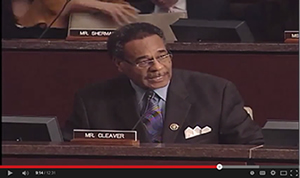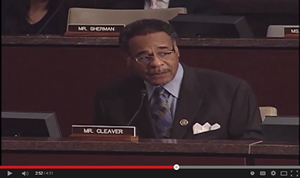A Helping Hand
A Helping Hand
When I look back to how my family got to where we are now, it was the help we received from the government, living in public housing, for six years, until my father could save enough money to buy a home. There are tens of thousands of other stories, just like that, where people needed a helping hand, received a helping hand, and now they use their time to extend that hand to help others.
Four walls and a roof make up so much more than the sum of their parts. Having a roof over your head means safety, security, and something more—a place to call your own. A home can enhance someone's ‘somebodiness.' I have experienced this feeling. Housing is a platform for helping someone's quality of life, from the education and health outcomes of children, to seniors aging in place.
Every individual, family, and child deserves access to a safe, secure, habitable, and affordable home. That's the American Dream. It is, in my opinion, our duty to ensure that everyone can exercise his or her human right to live in safety and with dignity. Not to ensure that everyone has equal outcomes, but to ensure that we begin at the same starting line.
In the richest country in the world, that Dream is far out of reach for many. It is unconscionable that there are millions of American families for whom safe and decent housing is neither affordable nor available. And while the private sector has played a critical role in funding and preserving affordable rental housing across the country, the free market is not an all-powerful panacea to solving our nation's homeless and rental housing crises.
We must fully fund rental and homeless assistance programs in order to both save taxpayer money and to serve the most vulnerable. That's why I introduced an amendment during a markup of the budget views and estimates in the House Financial Services Committee. The amendment was a way to support rental assistance programs at the Department of Housing and Urban Development. My colleagues did not agree to the amendment. But it did inspire a substantive and spirited debate on the nature of public assistance and the role government has to play.
We need the federal government to play a role in affordable housing. Not to crowd out private investment, but to attract it. Further, failure of the federal government to play a role in affordable housing would end up costing taxpayers more money. When there is not enough housing available, many more Americans are at risk of homelessness. As Benjamin Franklin said, an ounce of prevention is worth a pound of cure. It is egregiously more expensive to allow chronic homelessness to persist, than it is to proactively provide stable housing opportunities.
In 2013, 7.7 million very low-income unassisted families paid more than half their monthly income for rent, lived in severely substandard housing, or both.
This is a problem that affects every state and nearly every community across our country. Renters make up 38% of all households in my district, Missouri's Fifth. Almost two-thirds — 62% of those renters are "severely burdened," meaning they spend more than half of their income on housing costs.
They can't invest in their children's education, or contribute to their retirement accounts, or pay down payments or pay down their debts. Because most of what they bring home every month goes to their landlord or to the electric company.
Even worse, on any given night in our country, there are 578,424 people experiencing homelessness.
In 2012, the latest statistics we have, 17.7 percent of our nation's population lived in rural poverty. That's 8.5 million people who are suffering.
6.6 percent of Americans lived in deep poverty that year. That means they had an income so low, it was below half of the legal poverty threshold. Children in rural areas are disproportionately affected by the negative effects of poverty.
Many American families have not been so fortunate as to see their American dream come to fruition. We in Congress must avoid the dangerous and damaging temptation to drift into a red state/blue state divide, and instead we must find common ground.
Only together can we truly help those in need, and to put the American Dream in everyone's reach — not just that of a wealthy few.

